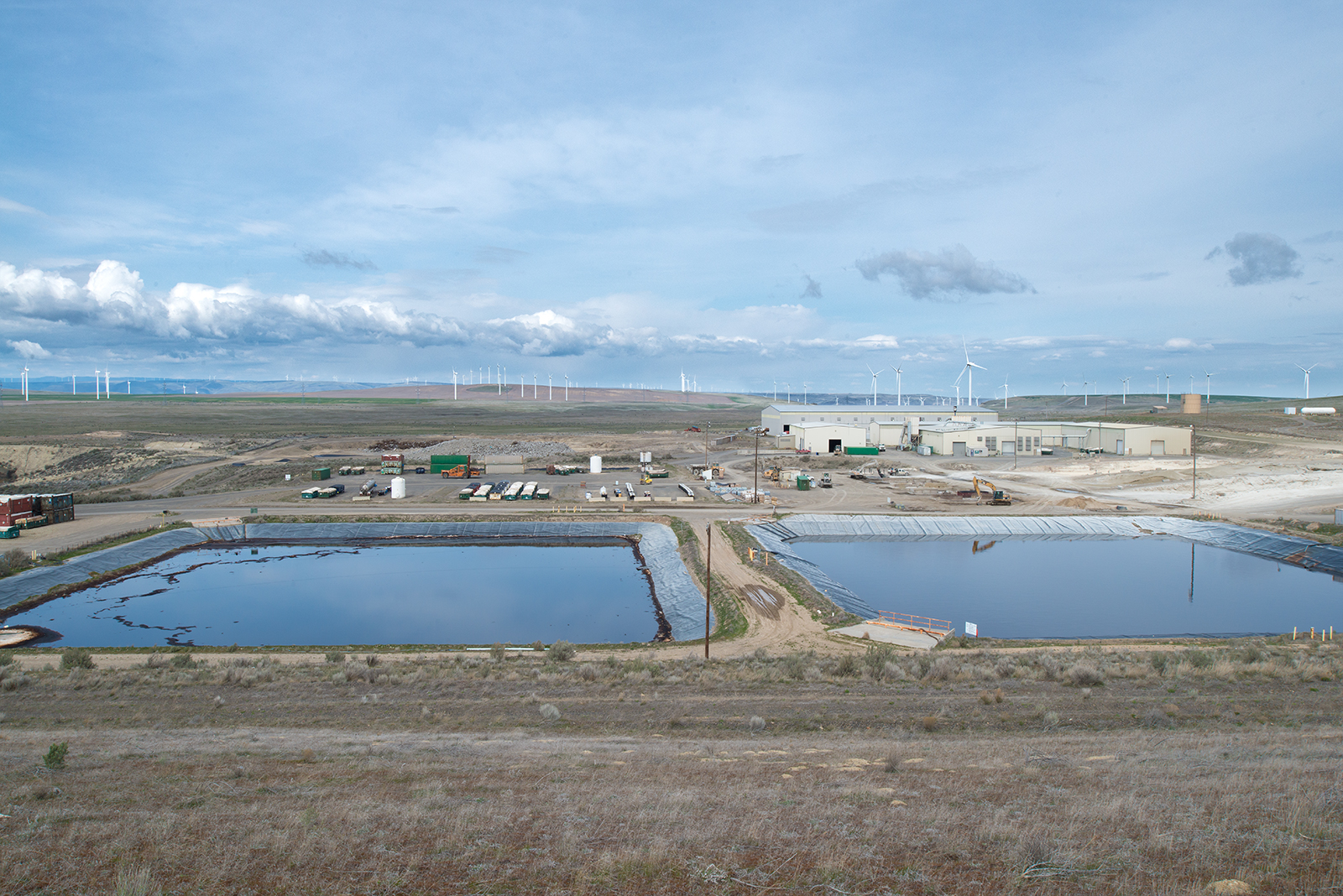
An undated file photo shows leachate evaporation ponds at the CWM hazardous waste landfill in Arlington, Ore.
CWM
A state agency has opted to leave millions of pounds of illegally dumped, radioactive fracking waste right where it is: in an Eastern Oregon landfill.
The Oregon Department of Energy’s decision on Wednesday comes a little over a year after it issued a notice of violation to Chemical Waste Management, or CWM, which operates Oregon’s only hazardous waste landfill, outside the Columbia River town of Arlington. An investigation found CWM had dumped 1,284 tons of radioactive waste — about 2.5 million pounds — in the landfill over the course of three years.
Oregon law prohibits the establishment of a radioactive waste disposal facility in the state.
After the violation, CWM had to come up with a plan for what to do with the waste. The company offered to either dig it up and ship it to another state where it’s legal, or to just leave it in the ground and monitor the effects. The company preferred to leave it in place.
“This is exactly where you want potentially dangerous materials and dangerous materials,” CWM spokesperson Jackie Lang said.
The state Department of Energy agreed to that plan, with amendments. The agency said in a fact sheet explaining its decision that removing the waste “would pose a greater risk to landfill workers than leaving the waste in place.”
“It is a hazardous waste landfill, of which there are not that many in the nation,” said Jeff Burright, a nuclear waste remediation specialist with the Department of Energy. “And they do have specific design features that are meant to contain waste for long periods of time, despite the fact that radioactive waste is not permitted in the facility.”
CWM will be subject to more stringent water quality monitoring under the agreement. The Department of Energy has also directed CWM to install a portal to scan shipments of waste for radioactivity before that waste goes in the ground.
Lang said the landfill has been conducting additional monitoring outlined by the Department of Energy for several months and that the company will install the portal in April.
The agency will require CWM to review current and recent waste streams as well to ensure the company hasn’t accepted any other radioactive material in the past.
This all started in 2019, when a tipster from North Dakota alerted Oregon regulators that the Arlington landfill might have been accepting radioactive waste from a company called Goodnight Midstream, which provides water disposal and recycling services to the oil and gas industry.
A subsequent investigation found Goodnight Midstream contracted a third party company, Oilfield Waste Logistics, to dispose of solid waste from a project in the Bakken Formation — one of North America’s largest contiguous oil and natural gas deposits. That company then “misrepresented” to CWM what material it was sending to the Arlington landfill to be dumped, the Department of Energy’s former assistant director for nuclear safety Ken Niles told OPB last year.
“In the manifest that they provided to Chemical Waste Management Arlington, it basically said that this waste does fit within Oregon’s regulations,” Niles said. “The other part of the problem is that Chemical Waste Management did not do their due diligence to ensure what they were being told by OWL was in fact accurate.”
The Oregon Department of Environmental Quality, which permits the facility, fined CWM and Oilfield Waste Logistics $60,000 and $308,656, respectively.
Lang said CWM “had a gap in our process” that the company has now addressed. The landfill stopped accepting the waste as soon as they learned it was illegal.
“Today, I can say with confidence that we are in full compliance and that our protections are better and stronger than ever,” Lang said.

